Alumni Panel: What’s Really Going On in Journalism Today
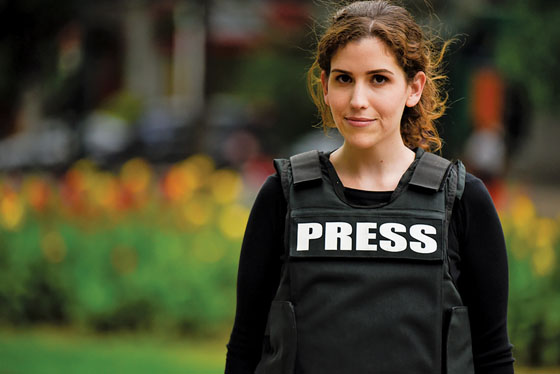
During Reunion & Commencement 2018 a panel of four alumni presented a Celebration of Wesleyan Writing WESeminar “Practicing Journalism in a Time of Fake News,” organized by University Professor of English Anne Greene, coordinator of the Writing Certificate and the Kim-Frank Visiting Writers program. Excerpts from the conversation are below:
Hannah Dreier: I went to Venezuela in 2014 when it was semifunctional, but things were starting to fall apart. The country was very polarized. It felt a little bit like the U.S. right now.
Over the course of my time reporting there, newspapers closed or were bought by the government. TV channels got shut down. CNN en Español was thrown out of the country and off the airwaves. Officials started going on TV denouncing individual journalists. A year after I was down there, somebody high up in government put my picture on a national broadcast and said I was a spy, watch out for me.
After that, people started recognizing me. Then my friends started getting detained by the secret police. I was detained for a short while. My editors also put a tracker on my phone because they needed to know where I was every minute. People started to really suffer, to go hungry. Shortages got out of control and through all of that there was less coverage. The New York Times got thrown out.
Maria Santana-Guadalupe: When you hear about Hannah’s experience in Venezuela and then you compare it to what’s starting to happen here, you have to wonder whether that’s the direction that we’re going in. We have correspondents and anchors at CNN en Español who can’t set foot in Venezuela. Our correspondent there has to be under 24-hour security. Now people in Venezuela have to watch CNN en Español via a YouTube channel that we provided for free just for people in Venezuela so they can still watch our coverage because we were thrown off the air.
Steve Greenhouse: I remember when I was a sophomore in the College of Letters: I wrote a paper and the great philosophy professor Philip Hallie wrote some remarks in the margin, “Your writing is turgid.” That really smarted and I said, “I’m going to learn to be a better writer.” One of the great things about Wesleyan is, you don’t take many multiple choice tests, but you do lots and lots of writing. I wrote hundreds of pages of papers in the ensuing few years, and now I’m a pretty good writer. If I could submit a paper to the late Professor Hallie, maybe now he wouldn’t say it’s turgid.
We journalists thought we were noble people following in the tradition of Woodward and Bernstein or I.F. Stone or other great journalists. Now, the President of the United States is defaming us, slandering us, calling us enemies of the people. The great Hannah Arendt said, “When leaders of a country deny the truth and say that truths are false and falsehoods are true, that makes it very difficult for a democracy to operate and it becomes much easier to manipulate people.”
It is a difficult era now for journalists. We’re being challenged more than ever before. I want to ask the panelists how in your day-to-day work, these criticisms of fake news and enemy of the people, have they affected any of you?
Hannah Dreier: Honestly, it’s hard not to talk about Venezuela, because I feel like that’s where I learned how to navigate.
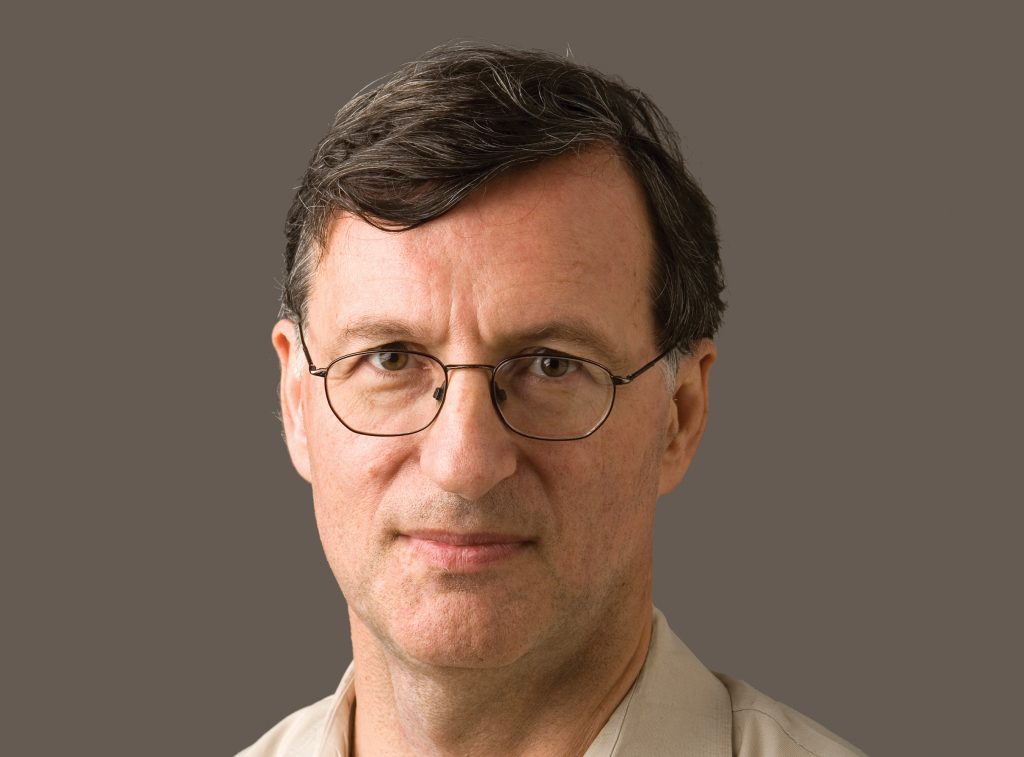 Steve Greenhouse: You’re covering immigration, which is a hot-button issue and you get a lot of push back when you write a story that might seem somewhat sympathetic to an undocumented immigrant.
Steve Greenhouse: You’re covering immigration, which is a hot-button issue and you get a lot of push back when you write a story that might seem somewhat sympathetic to an undocumented immigrant.
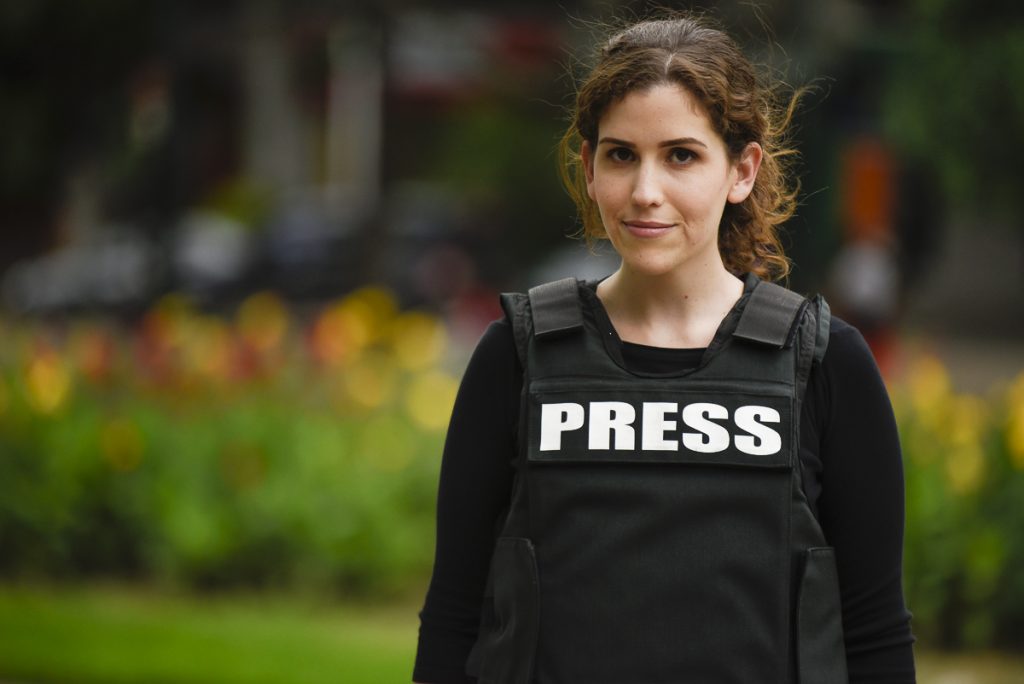 Hannah Dreier: I am with an investigative news outlet, so I have the luxury of just spending tons of time on one story. My approach has been to try to focus on telling concrete personal stories and trying to just pile enough detail that people can decide for themselves what they think is happening and how they feel about it. I just wrote a story about a teenager who was in a gang, MS-13, which is a Salvadoran street gang, basically.
Hannah Dreier: I am with an investigative news outlet, so I have the luxury of just spending tons of time on one story. My approach has been to try to focus on telling concrete personal stories and trying to just pile enough detail that people can decide for themselves what they think is happening and how they feel about it. I just wrote a story about a teenager who was in a gang, MS-13, which is a Salvadoran street gang, basically.
He had killed somebody back in El Salvador. He came to the U.S., tried to start a new life. He was trying to get out of the gang and started informing to the FBI, telling them whom he knew in the gang, what people’s gang names were, what he knew about murders that had happened on Long Island, which is where he was living. He was waiting to be put into Witness Protection. Then the police turned his bio over to ICE to be deported. He was arrested and put in an ICE detention center with all the people he’d just been informing on. ICE wrote up a memo that wasn’t sealed, which basically said he’d admitted to being a gang member because he was telling police all this stuff.
The gang, there with him, saw that and told him, “We’re going to kill you whether you’re deported or released. We’re going to kill you for informing.” After that story ran I started hearing from people who said they had never felt compassion for an immigrant, but they didn’t think that this should have happened to this kid.
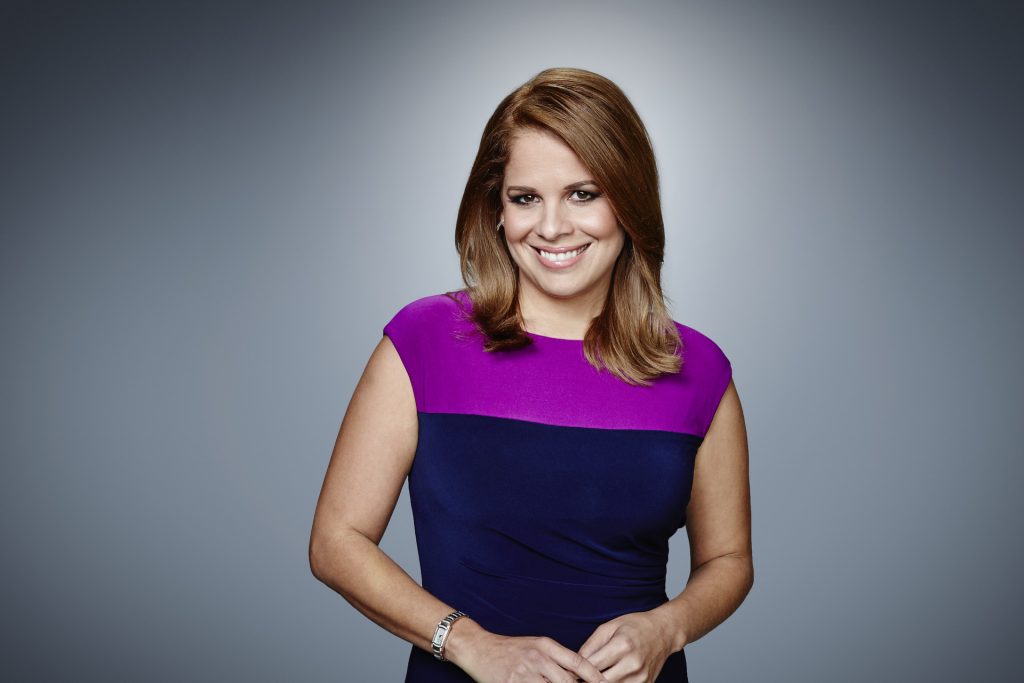 Maria Santana-Guadalupe: I followed a story for a long time about a military veteran who was deported. He had a green card, went into the military, served twice in Afghanistan and had PTSD issues. He was arrested on a nonviolent drug charge and lost his green card and was deported to Mexico, a country he hadn’t been in since he was eight years old. Just dropped at the border and told, “There’s Mexico. Go find your way,” after he served to defend everybody who’s in this room and everybody in this country.
Maria Santana-Guadalupe: I followed a story for a long time about a military veteran who was deported. He had a green card, went into the military, served twice in Afghanistan and had PTSD issues. He was arrested on a nonviolent drug charge and lost his green card and was deported to Mexico, a country he hadn’t been in since he was eight years old. Just dropped at the border and told, “There’s Mexico. Go find your way,” after he served to defend everybody who’s in this room and everybody in this country.
When you write things like that, Twitter becomes incredibly difficult to be on because you get insults: how could you be sympathizing with a criminal, how could you sympathize with MS-13? We’re seen as defenders of MS-13 because we’ve done stories about gang members, getting their viewpoints on what’s going on. It’s very difficult. You never adjust what the truth is. As a matter of fact, our fact-checking process is a lot more stringent than it used to be.
People say, “Oh, you guys are just biased. You write whatever and throw it up there and then it’s false and there are no sources. Nobody’s telling you this.” That’s completely false. We do have sources. We do get information from a lot of different places and we have a process in place that’s very strict. We have several different levels of checks, and now it’s become even more difficult to go through that process because we have to be even more careful that we are being as accurate as possible. The last thing we need is to be accused of fake news because we made a mistake. That’s how things have changed for us.
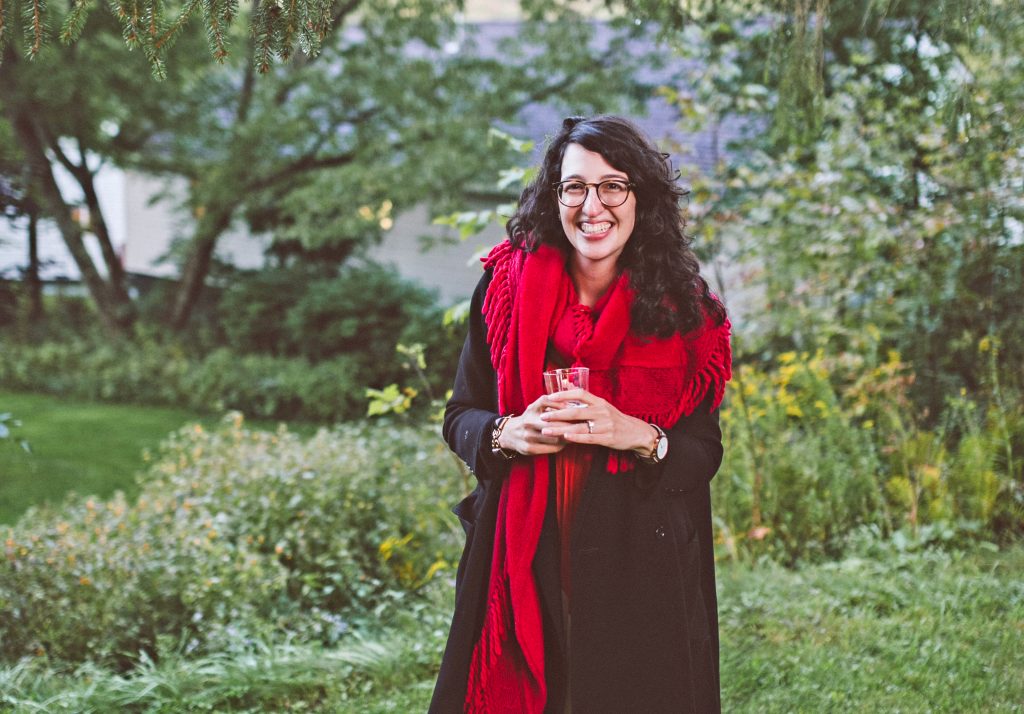 Emily Greenhouse: Journalism is in an extremely precarious moment. We publish and print four big, fat stories a week. A lot of people in our generation and younger have grown up with social media as a curator and don’t have the sense of an op-ed page as a curator. By selecting certain stories, certain subjects to cover and not others we are saying, “This is what matters.”
Emily Greenhouse: Journalism is in an extremely precarious moment. We publish and print four big, fat stories a week. A lot of people in our generation and younger have grown up with social media as a curator and don’t have the sense of an op-ed page as a curator. By selecting certain stories, certain subjects to cover and not others we are saying, “This is what matters.”
In the work that my colleagues and I have done on Harvey Weinstein and his remarkable toppling, that has been a really—I don’t want to use the word optimistic to describe this moment, because it’s such a harrowing and devastating story. The two biggest stories in the country, if not world, are Donald Trump and the #MeToo movement, the revelations about sexual assault.
It took a lot to put the Weinstein story out. It took months and months of work, lawyers, fact-checkers. As Maria was indicating, there’s nothing cavalier about doing this work. Now people know that Weinstein did, in fact, do this. I find it troubling and difficult to square why people believe the stories about Weinstein—and our society has changed since October, remarkably and shockingly and beautifully—but people aren’t entirely trusting these same news venues when it comes to politics. That’s something I find difficult to square.
Maria Santana-Guadalupe: You make a very good point about news literacy. When I did my Wesleyan TEDx talk, I spoke about being an educated and critical news consumer. You can’t be casual. You can’t just read headlines. You can’t just take whatever your friend forwarded you on Facebook and forward it along. You have to be critical and do your own research. Where is this coming from? Who’s telling me this? What process do they have in place to ensure that I’m not forwarding false information?
There is an industry out there of fake news. There are people who make money off misleading you, making you click on things, making you feel a certain way even though it’s completely false. At its most dangerous, they’re trying to control your actions and what you think and what you believe. That’s not freedom. That’s propaganda. That’s not news.
Steve Greenhouse: How does practicing journalism now compare with before Donald Trump was elected? How do you feel when you’re being accused of being an enemy of the people and engaging in fake news? How do you feel when you’re told you’re too hard on Trump or unfair to Trump or in Obama’s pocket?
Emily Greenhouse: These are genuine threats to the industry, but I think you, Dad, like the president, have a real tendency to focus on these distractions. Trump really works the press like smooth vanilla. I really do think it’s a distraction. He cares a lot about the media, and he is winning at the game to an extent by our obsession with the phrases “fake news,” and “enemy of the people.”
Maria Santana-Guadalupe: Sometimes we can become so distracted by the scandals and tweets. We wake up every day and the first thing I get is a tweet alert. I’m like, “Oh, my God. My whole day is going to center around this guy’s tweet.” That’s just how it starts. The scandals distract you from what’s happening behind the scenes. It’s the policy. Dismantling our environmental rules, changing immigration laws and how we enforce our immigration laws, the banking system… There are so many things, whether we agree with them or not, there are just so many things that we’ve missed because we’re focused on the tweets.
It takes hours, sometimes weeks for me to do a story. Then for it to be just dismissed, “Oh, fake news.” That’s my whole work for an entire week. It really is frustrating, but it makes my commitment even stronger to do what I do.
Steve Greenhouse: To answer my daughter’s critique, Dan Rather once said, and I agree with him, “When the First Amendment is attacked, we have to defend ourselves, because no one else is going to defend us.” I fear that if Donald Trump tweets out “New York Times, CNN, Washington Post are enemies of the people,” and we don’t respond by trying to refute what he says, that might end up helping him win the argument even more. I would recommend against turning the other cheek.
Maria Santana-Guadalupe: Here’s another thing: As a news consumer, we also have to know the difference between a reporter and a commentator and an analyst and somebody who is there to give their opinion. We, as correspondents, are held to a much different standard than someone who is a legal or political analyst.
Hannah Dreier: Emily said something really interesting: The two biggest stories in the world, and I agree, are Trump and then the #MeToo movement. I don’t think it’s a coincidence that allegations against Trump came out during the campaign. Nobody seemed to pay attention then—but that story shook the world afterwards.
That’s what we’re doing also on immigration. The truth is immigration policy hasn’t changed that dramatically under Trump. The rhetoric has changed, but what he’s really done is put immigration in the center of the national conversation. There’s a little more room now to do these immigration stories. I don’t think people would have paid attention in the same way two years ago.
Audience Question: I’m Suzanne Barlyn, Class of ’88, and I’m a business journalist. I write about the U.S. insurance industry and I’ve been a business journalist for 24 years. There are times when I ask a question such as, “Why were the expenses of your company so low? I heard from multiple sources that your company had a real problem with paying claims and if you wanted your claims paid, you had to get a lawyer.” Response: “You’re making that up. Is that what you do?” It’s a fallback response now for dealing with a difficult question.
If we were to write only Company A’s view, Company B’s view, Company C’s view in a story, that’s not journalism. That is regurgitating what a company tells me. As a journalist, it’s my job to ask questions and find the information that they don’t want investors to know, that they don’t want the public to know. That’s why I exist.
As journalists, we should also recognize that in the Obama administration Eric Holder would target journalists over government leaks. This administration is on that continuum.
Steve Greenhouse: Thank you for that.
Audience Question: With the recent deaths in Gaza, my social media network exploded with equal parts… “Israel was totally justified in using live rounds and force” and “They are murdering innocent Palestinians from Gaza.”
Nobody believes that the information provided by the other side is accurate or factual. We are trapped in our silos, in our echo chambers of our own beliefs. I don’t know how we get beyond that at this point. That scares me tremendously—because it didn’t matter what the articles were or where the sources were: it was judged “obviously fake news” if it was the opposite of what opinion I’d held before I even opened my Facebook feed that day.
Maria Santana-Guadalupe: I agree with you. That has to be something that we as a society need to explore. We have to get back to agreeing on facts. What happened, when it happened, and how it happened. Then we also need to get back to a little bit of civility. We need to disagree while still being courteous, still being respectful. That comes from the top as well. The discourse has really disintegrated in the country.
Audience Question: I’m Janice Okoomian, Class of ’83. I teach at a public college in Providence, Rhode Island. My students are mostly working class, and many of them are first-generation college students. They are desperately trying to get themselves out of poverty, often working 30 hours a week, raising children, and dealing with drug-addicted family members in addition to going to school full time.
It is a big challenge to teach media literacy to this population because some of our students haven’t yet learned (from families or schooling) critical or intellectual thinking habits, and we really have to start from the beginning. Although my field is gender and women’s studies, I’m now teaching basic media literacy in all my courses. Can you speak to how we can effectively encourage all sectors of the American populace, especially students like mine, to become more media literate and more engaged in democratic discourse??
Hannah Dreier: I’ve been thinking about this. Did you guys see what happened with Elon Musk this week? This is the founder of Tesla and SpaceX. A news outlet wrote a story about how Tesla workers were being injured at greater rates. It was a very critical story about Tesla. Musk, who has no excuse to be this stupid, went on this Twitter rant about how these reporters were attacking him because conventional car companies buy more ads than Tesla, which buys no ads. This was wrong in so many ways.
The article was written by a nonprofit news outlet, so advertising had nothing to do with it, but I was shocked. People lack news literacy in this insane way, and it seems like he just didn’t understand the fundamental things about how these journalists were doing their work and how they were being paid and how news works in 2018. It’s incumbent on journalists to explain how we do our job more.
I started putting a box at the bottom of my stories. ProPublica does this a lot, where we explain how we got a story, everybody we talked to, and how we came to the conclusions we came to. It’s helpful because people just don’t understand how we’re getting a story. I think we need to be looking for other ways to reach out to readers and say what we do and how we do it, because they don’t seem to know and it’s shocking.
Steve Greenhouse: That’s great that you’re teaching media literacy. Many high school teachers, English teachers, social studies teachers should also have their kids analyze and dissect several newspaper stories a week. That would be great.
